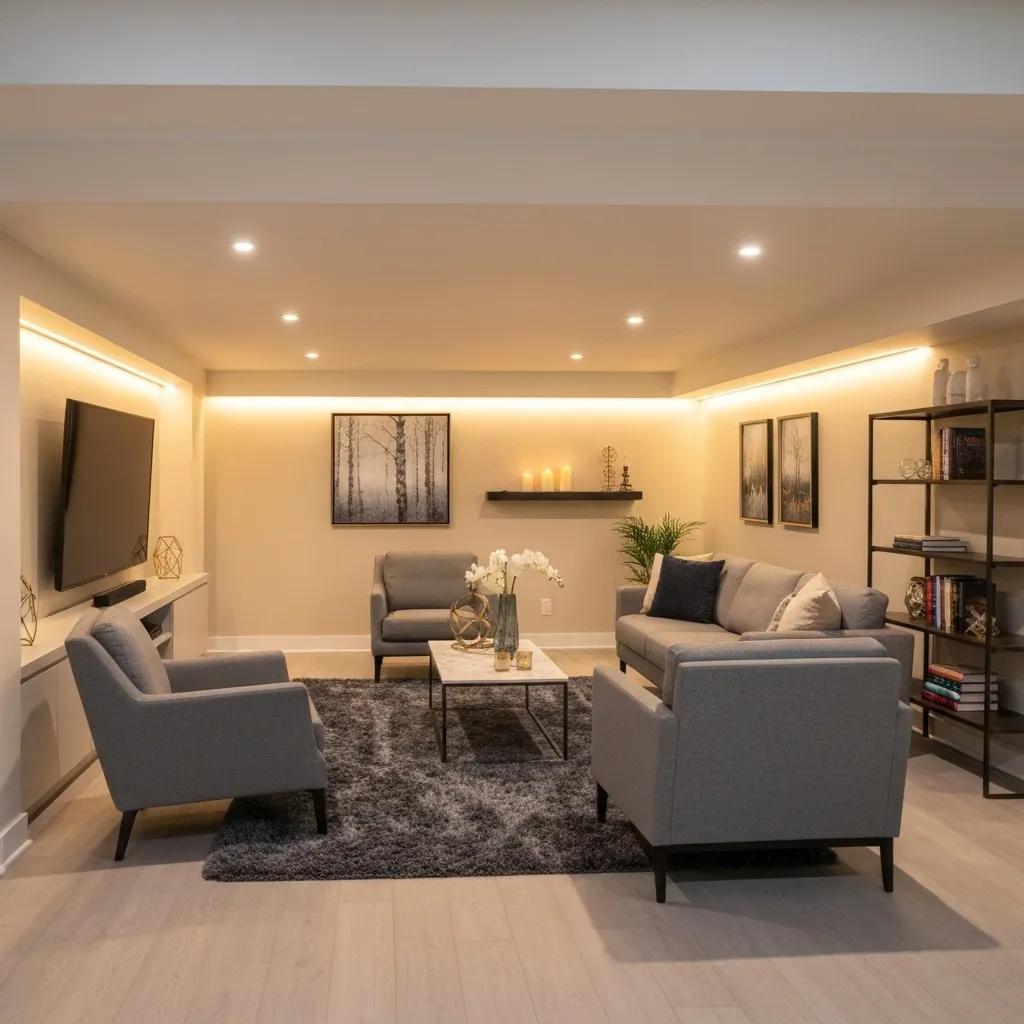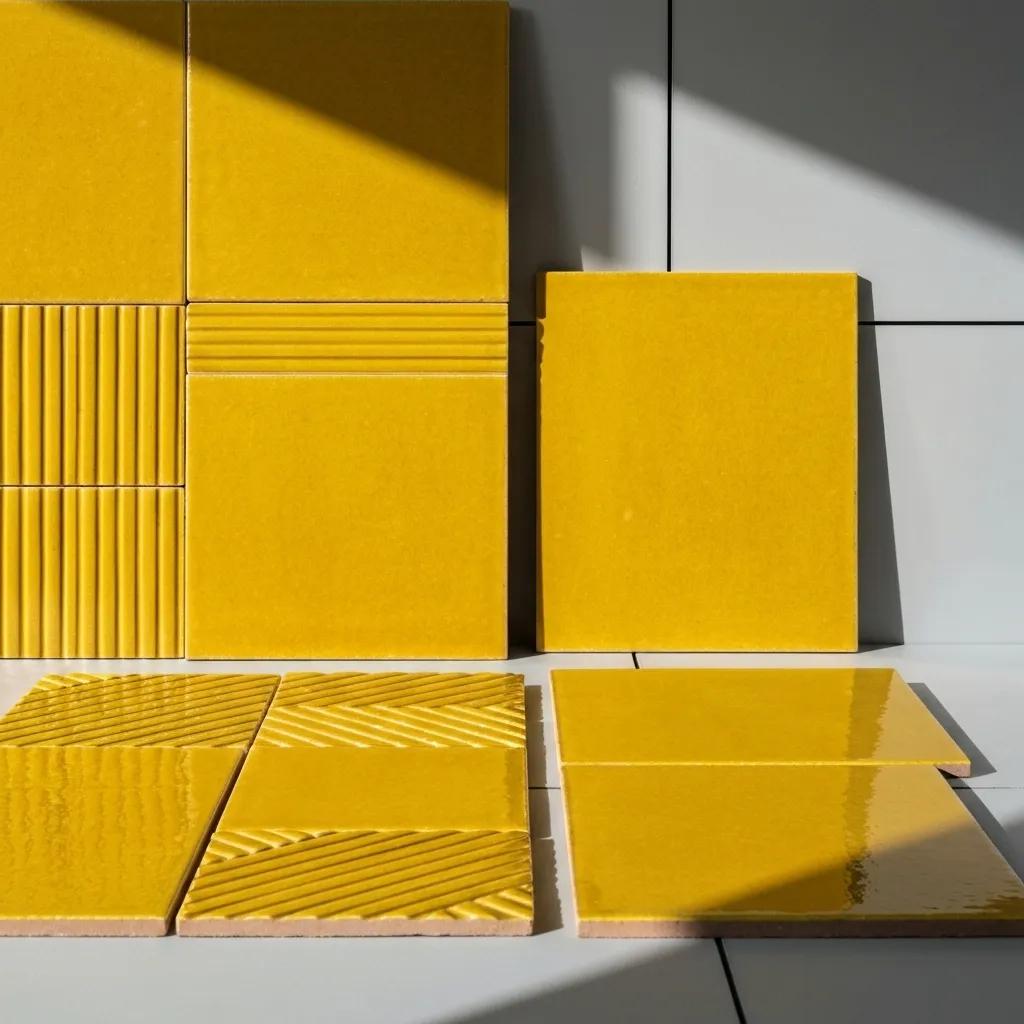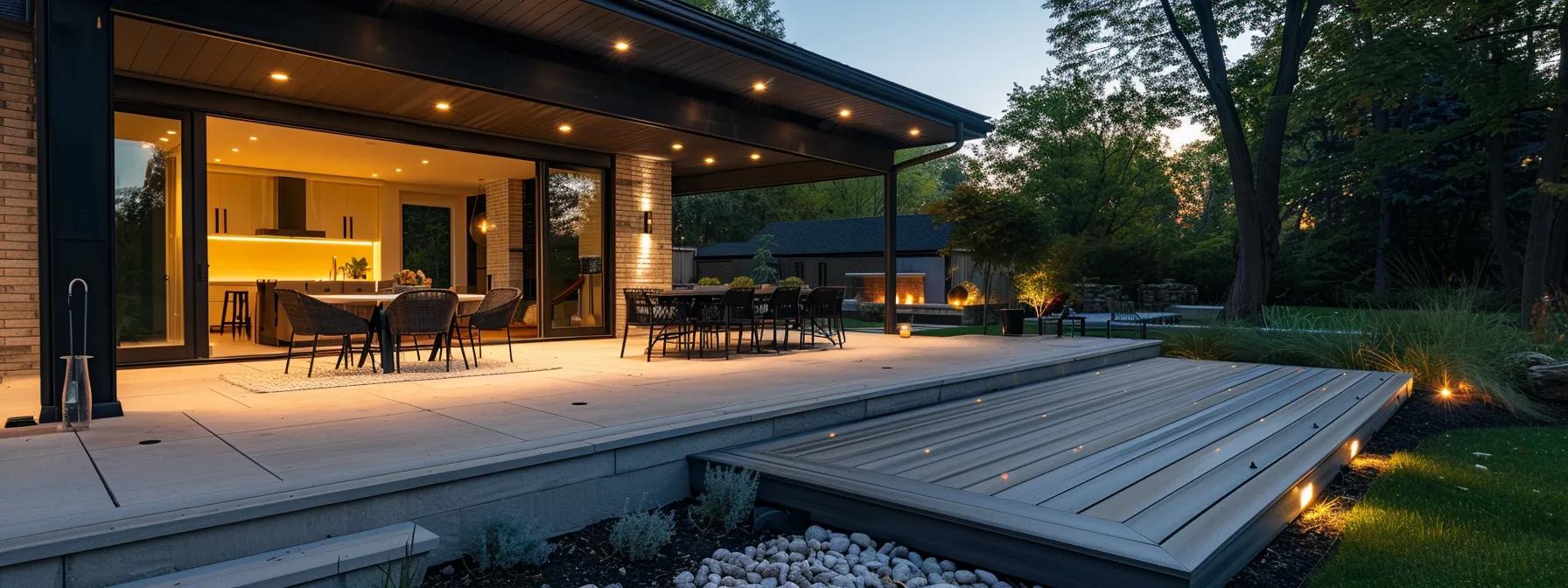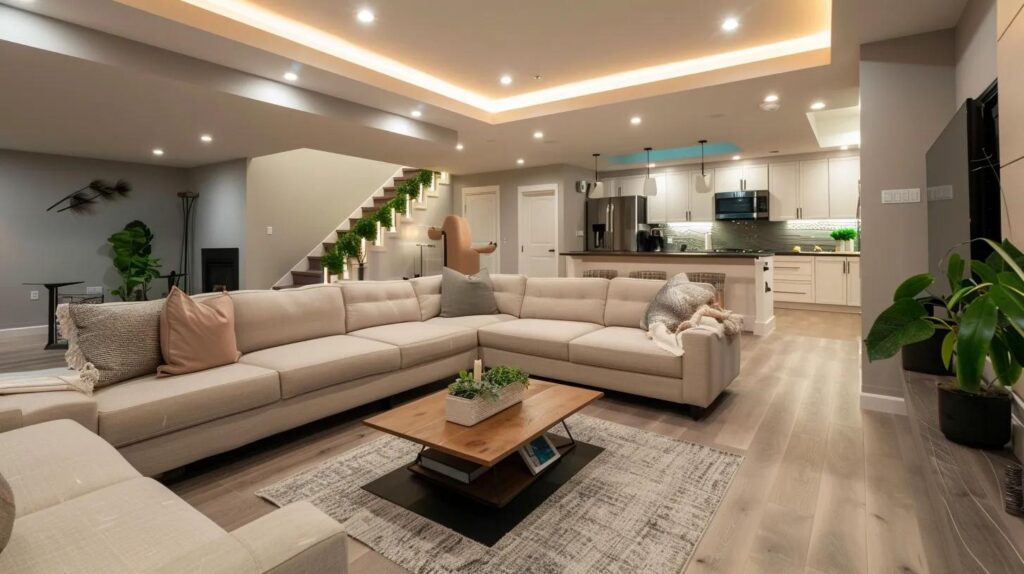
Maximize Home Value With Finished Basement Spaces
basement finishing des moines is a smart investment for homeowners looking to increase overall home value while creating versatile living areas. A finished basement adds usable space, boosts energy efficiency, and improves resale value and return on investment. In fact, many local experts in des moines recommend basement finishing des moines as a way to maximize both functionality and appeal. This article outlines benefits, planning and design tips, cost breakdowns, local building code considerations, energy efficiency options, contractor selection tips, and ROI calculations to help homeowners in Des Moines, Iowa, and the surrounding 40-mile radius make informed decisions.
Key Takeaways
- Finished basements add usable space and boost home appeal.
- Thoughtful design and energy-efficient choices improve comfort and functionality.
- Understanding cost breakdowns and building codes helps ensure a compliant renovation.
- Choosing an experienced contractor maximizes return on investment.
- Case studies demonstrate that proper basement finishing can substantially increase market value.
What Are the Key Benefits of Finishing Your Basement to Increase Home Value?
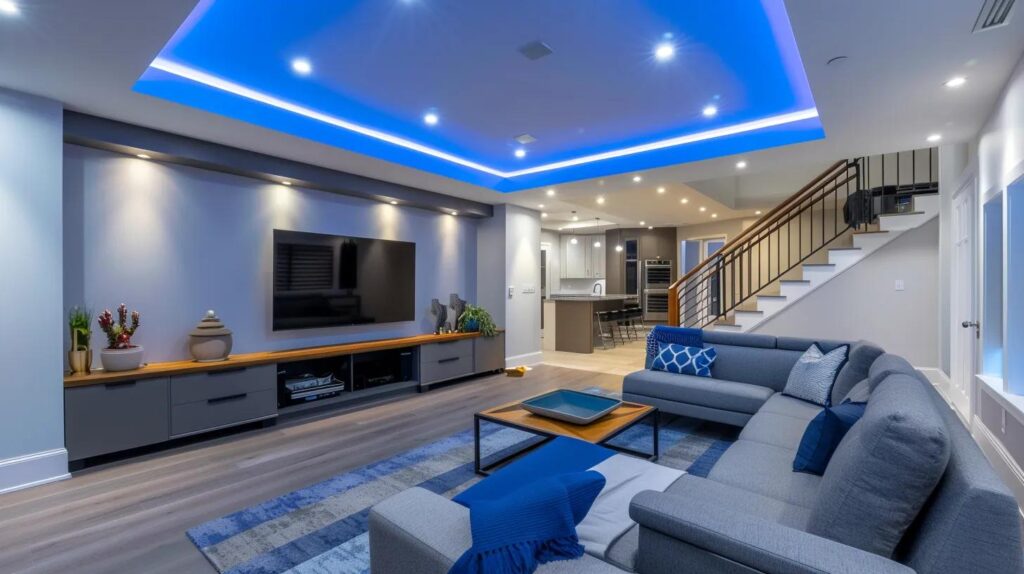
Finishing a basement directly enhances home value by adding square footage that can serve as a family room, guest suite, or home office, making properties more attractive. Updated basements create multifunctional spaces ideal for entertainment, storage, or leisure and often integrate smart features like energy-efficient lighting and quality flooring to improve both appeal and utility.
How Does Basement Finishing Add Usable Living Space?
Completing a basement creates a new, customizable space. Whether converted into a living room, extra bedroom, or home theater, the added area increases overall capacity. Features like walk-out access and emergency exits ensure safety and improved layout without sacrificing style.
In What Ways Does a Finished Basement Improve Home Value and ROI?
A finished basement is a selling point that raises market value by signaling proper maintenance and upgrades. Benefits include lower energy costs due to improved insulation, and studies suggest that such projects can yield a return on investment comparable to other high-value remodels. For more information about costs, visit understand the costs of your basement finishing project.
What Multifunctional Basement Features Boost Property Appeal?
Multi-use rooms that serve as play areas, gyms, or media rooms enhance appeal. Additional features such as built-in cabinetry, wet bars, and flexible partitions create dynamic spaces that enrich daily living and strengthen market competitiveness.
How Can You Plan and Design a Finished Basement for Maximum Space Optimization?
Effective planning starts with evaluating the existing space for light, sound, humidity control, and structural limits. Using tools like 3D renderings assists in visualizing layout options to ensure every inch is efficiently utilized. A well-thought-out layout that aligns with lifestyle needs can dramatically improve the overall functionality of the basement.
What Are the Best Basement Design Ideas to Maximize Space?
Opt for open-plan designs by removing unnecessary walls to offer flexibility in furniture placement. Integrated storage such as built-in bookshelves, closets, and under-stair units can maximize functionality, while creative lighting—with recessed fixtures or smart LED systems—adds brightness and an illusion of space.
How Do 3D Renderings Help Visualize Your Finished Basement?
3D renderings offer a realistic preview, aiding in both space planning and material selection. They allow homeowners to experiment with designs and make adjustments before final decisions, ensuring the finished space meets aesthetic and ergonomic needs.
What Space Optimization Techniques Work Best in Basement Finishing?
Techniques include using multifunctional furniture like sofa beds and extendable dining tables, and installing vertical storage solutions to take advantage of high ceilings. Exposed beams and minimalistic design contribute to an open atmosphere, while zoning without intrusive walls defines distinct areas for different activities.
What Are the Typical Costs and Financing Options for Basement Finishing Projects?
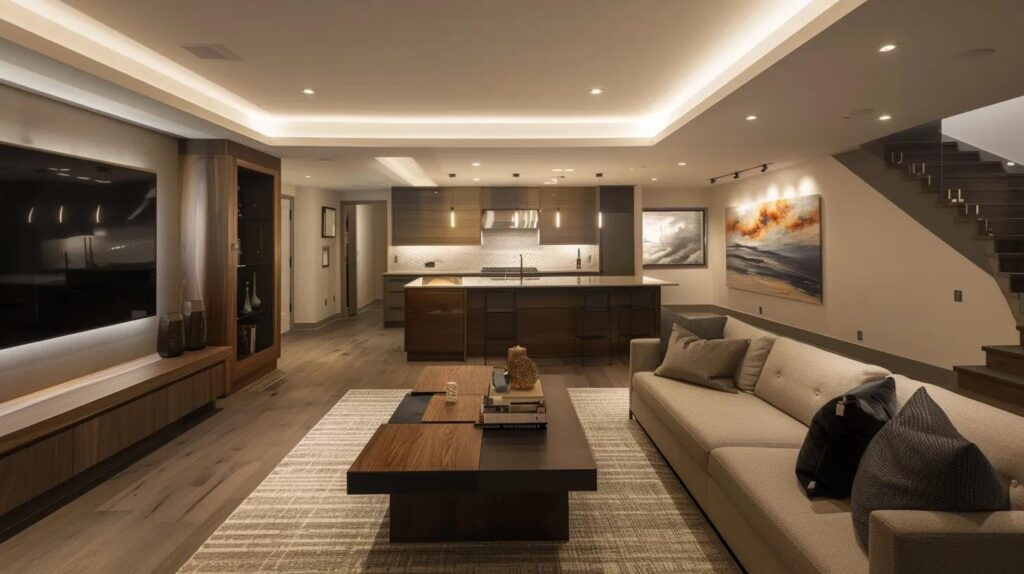
Costs for basement finishing depend on design, square footage, and project complexity. Expenses are commonly divided among materials, labor, permits, and additional systems like waterproofing and HVAC. Financing is achievable through home equity loans, refinancing, or personal loans, making upgrades accessible to many homeowners.
How Is Basement Finishing Cost Broken Down?
Expenses include construction materials (drywall, flooring, ceilings), labor fees (contractor and subcontractor payments), permits and inspections, and systems such as HVAC and waterproofing. Labor costs typically consume 30-50% of the budget, which makes obtaining reliable estimates critical.
What Factors Affect the Total Cost of Finishing a Basement?
Key factors include basement size, layout complexity, local labor rates, and material quality. Older homes may require extra spending on insulation, moisture control, and electrical upgrades. Premium features like upscale lighting, custom cabinetry, and smart home systems can drive the cost higher while offering added value. Basement finishing mistakes can lead to unforeseen costs.
Which Financing Options Are Available for Basement Renovations?
Options include home equity loans, refinancing, personal loans, or specialized renovation financing. Each option has benefits and drawbacks based on credit, available equity, and projected ROI. Consulting a financial advisor can help choose the most cost-effective method.
How Do Local Building Codes and Permits Impact Basement Finishing Projects?
Adhering to local building codes and acquiring proper permits are essential. These codes ensure safety and structural integrity by addressing moisture control, emergency exits, and energy efficiency. Compliance also minimizes legal risks and adds market value.
What Are the Basement Building Code Requirements in [City, State]?
In [City, State], requirements may include ceiling height, emergency egress windows, moisture barriers, and proper electrical installations. Researching local regulations or consulting a licensed contractor is critical to ensuring legal and safe construction.
How Does the Basement Permit Process Work in [City, State]?
The process usually involves submitting building plans for municipal review, scheduling inspections at key construction stages, and ensuring adherence to zoning and safety regulations. Timely permits help avoid delays and fines.
Why Is Compliance With Building Codes Essential for Home Value?
Meeting all regulatory requirements ensures the finished basement is safe and legally sound, making it more attractive to future buyers and appraisers. Compliance can reduce potential legal liabilities and repair costs, ultimately boosting home value.
How Can Energy Efficiency and Sustainable Materials Enhance Your Finished Basement?
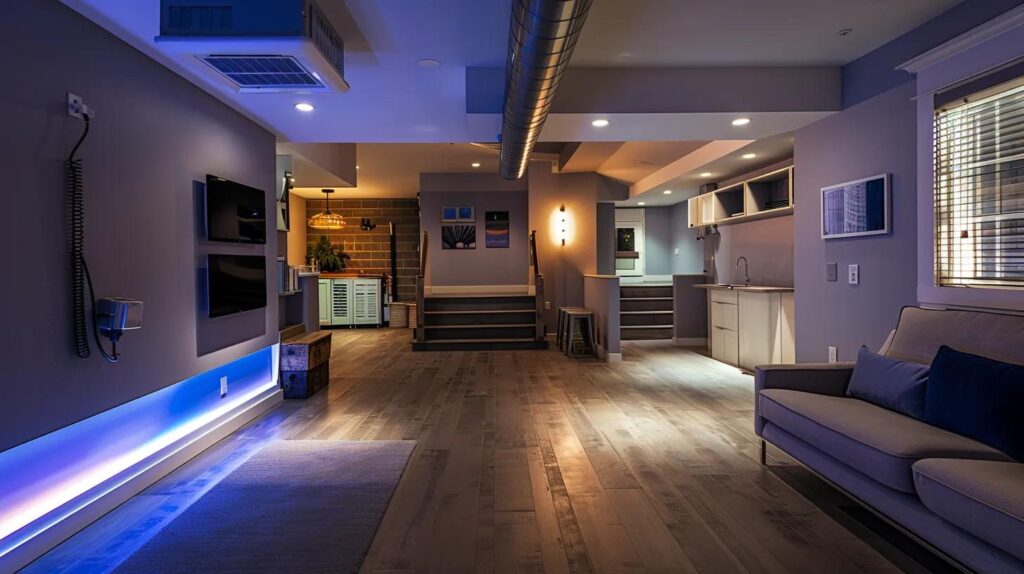
Incorporating energy-efficient systems and sustainable materials reduces utility bills and attracts eco-conscious buyers. Options include high-performance insulation, energy-star rated HVAC systems, and recycled building materials that provide durability and improved indoor air quality.
What Are the Best Insulation Options for Energy-Efficient Basements?
Popular choices include high-performance foam insulation and spray foam due to their excellent thermal resistance and moisture barrier properties. Reflective insulation on basement ceilings can further improve energy performance.
How Do HVAC Systems Improve Basement Comfort and Efficiency?
Properly sized HVAC systems ensure consistent temperature and air quality. Modern systems often include programmable thermostats and smart sensors to optimize energy use based on occupancy, significantly enhancing overall comfort.
Which Energy-Efficient Materials Should You Choose for Basement Finishing?
Materials such as low-VOC drywall, sustainable wood flooring, and recycled insulation not only boost energy efficiency but also support a healthier indoor environment. These eco-friendly choices provide long-term benefits and appeal to modern buyers.
How Do You Choose the Right Contractor for Your Basement Finishing Project?
Selecting the right contractor is vital for completing a project on time, within budget, and according to high standards. Look for contractors with proven basement renovation experience, strong references, and a solid understanding of local building codes to minimize delays and future repair issues.
What Qualities Should You Look for in a Basement Finishing Contractor?
Important qualities include a strong portfolio of past projects, proper licensing, insurance, clear communication, and local expertise in Des Moines and surrounding areas. Detailed proposals and examples of previous work are useful for assessing a contractor’s reliability.
How Can Local Expertise Influence Project Success?
Contractors familiar with regional building codes, permitting processes, and local construction trends can streamline project scheduling and resource management. This expertise ensures the finished basement meets both regulatory standards and market expectations.
What Questions Should You Ask Before Hiring a Contractor?
Ask about past basement projects, timelines, project management practices, warranty offerings, and request references. Thorough discussions help ensure the contractor can deliver a space that meets both functional and aesthetic requirements.
How Can You Calculate and Maximize the ROI of Your Finished Basement?
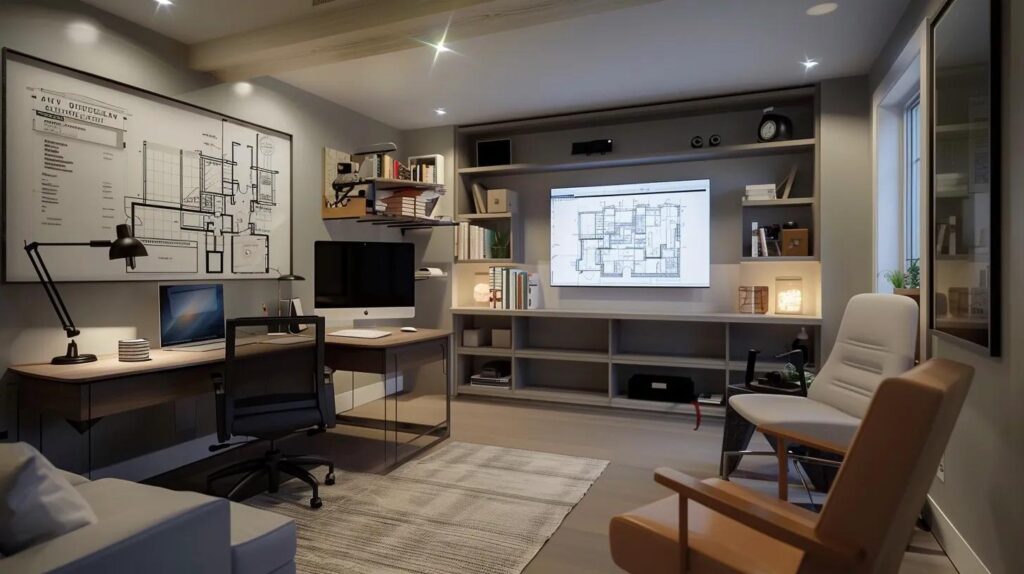
Calculating ROI involves comparing the initial investment to the increase in home value over time. Detailed planning, budgeting, and careful design choices can significantly boost market value, making the project a solid investment.
What Methods Are Used to Calculate Basement Finishing ROI?
Methods include comparing sales of similar properties, analyzing cost-to-value ratios, and consulting with real estate appraisers. Such analyses illustrate that finished basements can often recover 50-70% or more of the initial cost when the home is sold.
How Much Can Basement Finishing Increase Your Home’s Market Value?
Industry experts suggest that a finished basement can raise a home’s market value by 10-20%, depending on design quality and construction standards. In competitive markets like Des Moines, this increase can be particularly noteworthy.
What Are Real-Life Case Studies Demonstrating Basement Finishing ROI?
Some homeowners in Des Moines have reported a 15-20% overall value increase after basement finishing, especially when energy efficiency upgrades and high-quality finishes are involved. For more information, you can visit avoid these basement finishing mistakes in des moines homes.
| Cost Component | Estimated Percentage of Total Cost | Benefit |
|---|---|---|
| Materials & Finishes | 40% | High-quality look and durability |
| Labor & Permits | 50% | Ensures code compliance and quality |
| Miscellaneous | 10% | Design enhancements and contingency costs |
The table above summarizes cost allocation and benefits for each component.
Final Thoughts
Finished basements add valuable living space, enhance home value, and offer versatile functionality. With smart design, adherence to local codes, and energy-efficient upgrades, homeowners can achieve a high return on investment. An experienced contractor ensures a smooth process, making basement finishing a worthwhile investment in comfort, aesthetics, and overall property value.
Frequently Asked Questions
Q: How long does a typical basement finishing project take? A: Projects generally take 4 to 8 weeks, depending on complexity and design requirements.
Q: Can finished basements improve energy efficiency? A: Yes, proper insulation, energy-efficient HVAC systems, and eco-friendly materials can significantly boost efficiency.
Q: What are the safety concerns associated with basement renovations? A: Ensuring waterproofing, proper emergency exits, and compliance with building codes is critical for safety.
Q: How do I finance my basement renovation project? A: Homeowners can finance through home equity loans, refinancing, or personal loans based on their financial situation.
Q: Will finishing my basement add to my home’s resale value? A: Absolutely; finished basements can increase market value by 10-20% and attract more potential buyers. For more information, check out our understand the costs of your basement finishing project.

